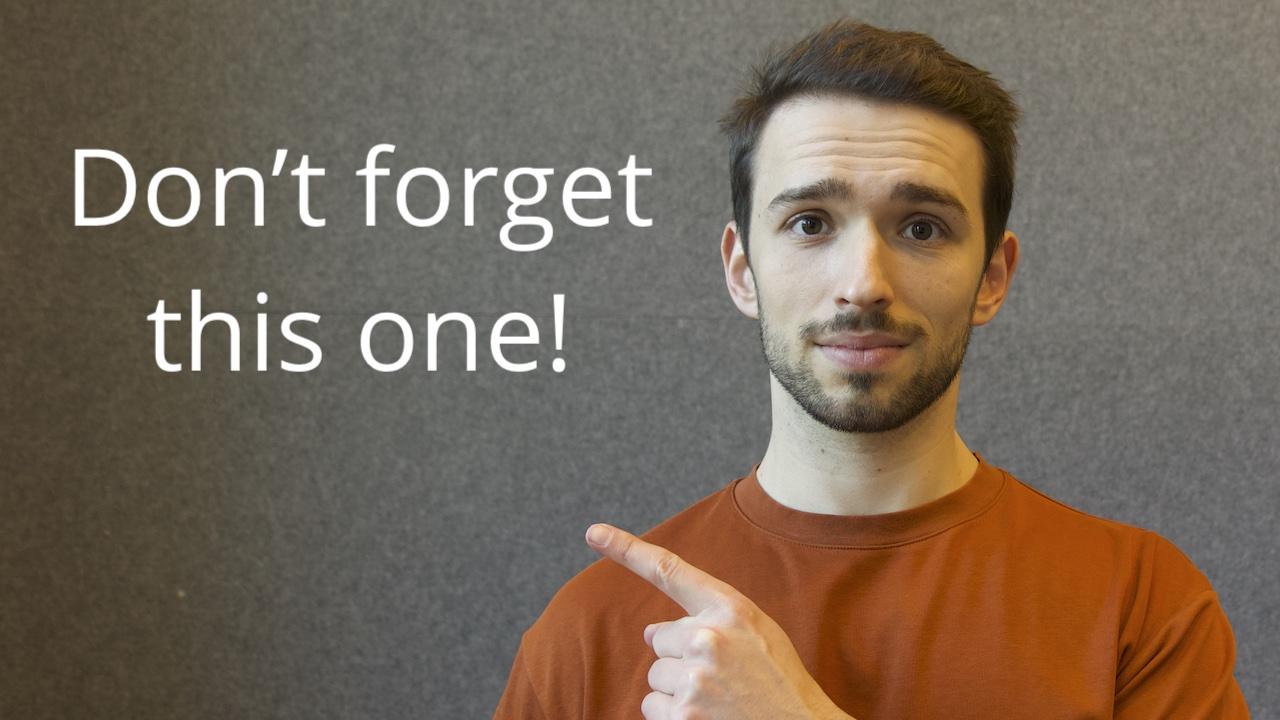Every university founder throughout history has had to ask themselves the following question: What will it be for? Usually, they have considered these two alternatives:
(1) to help students become well-rounded human beings,
or
(2) to help students prepare for a career.
You may be surprised to read 'or' between the options. In an ideal world, these goals may indeed align well, but in reality time and resource constraints force educational institutions to choose between one or the other.
Advocates of liberal education, which is what the first approach is called, assert that we should teach students how to grow into better people, period. They argue students should study for personal enrichment, and that learning should be purely for its own sake. The curriculum ought to be theoretical, timeless, neutral and, at times, niche. On the other hand, proponents of professional education, the other school of thought, agree it is nice to be a good person, but that being a good person alone does not sustain you. Higher education, in their view, should improve people's lives by teaching in-demand skills that enable graduates and the economy to do well. They would maintain that a curriculum should be adaptive, specific, and responsive to trends.
Of course, both camps have a point, and most higher education institutions choose a combination of the two and teach a curriculum that combines both liberal and practical content.
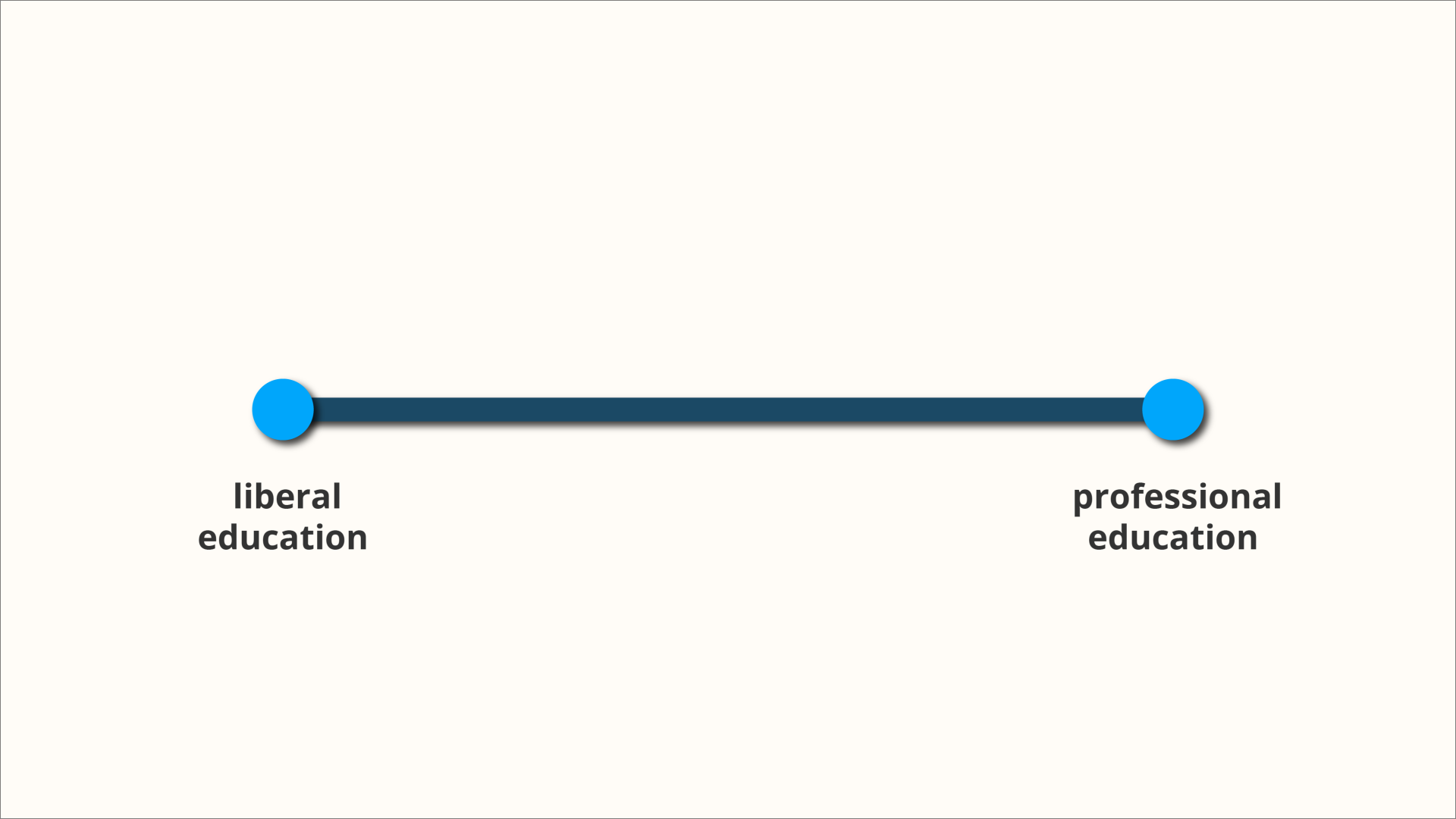
That being said, higher education institutions around the world differ wildly in their stance on liberal versus professional philosophies. The Liberal approach has particularly taken root in the United States. The first two years of an American bachelor's programme are designed to help students discover what they like by exposing them to a wide range of subjects, from literature to science and history, and encouraging them to take a range of diverse electives.
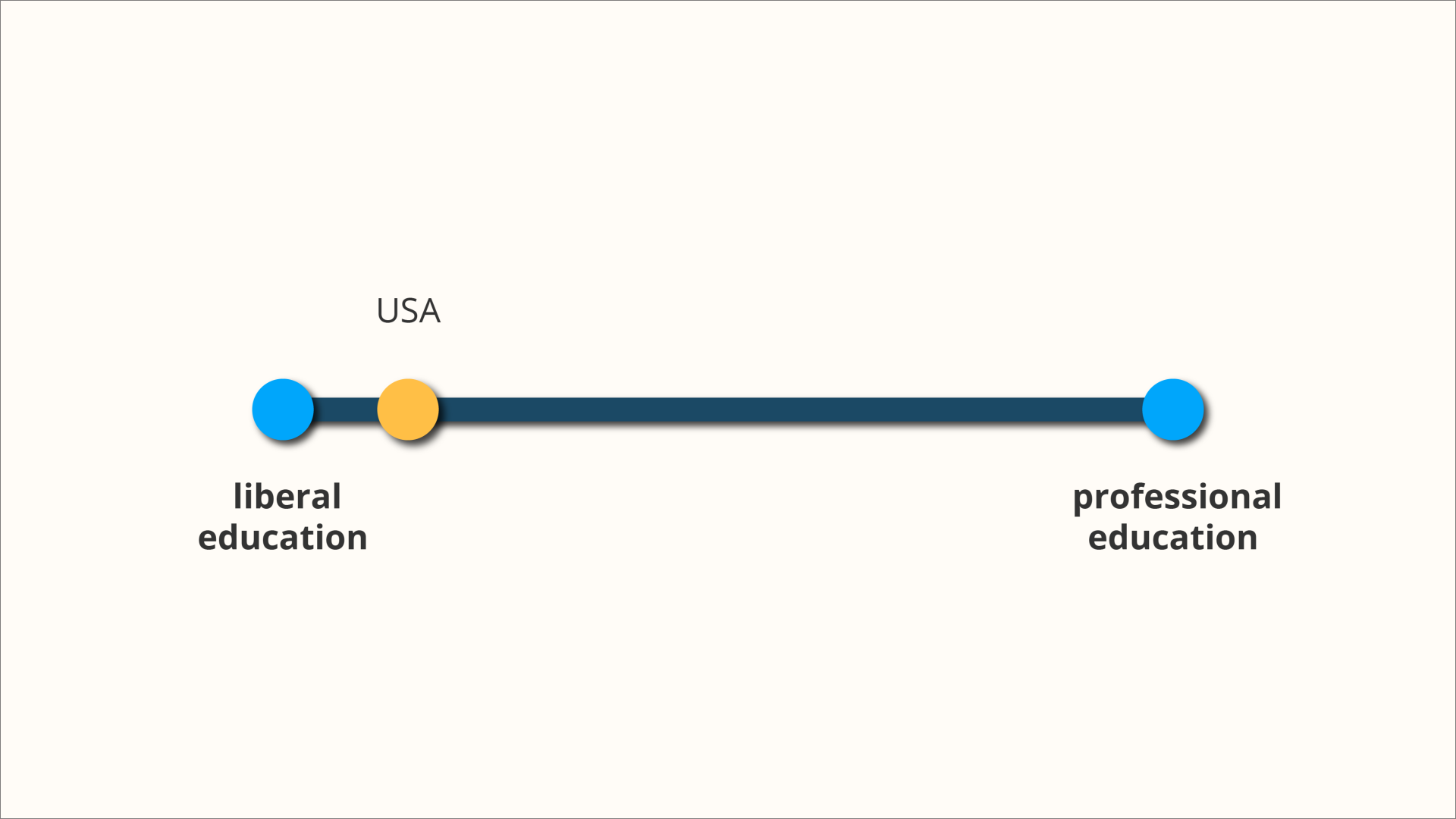
On the other side of the spectrum, in the Netherlands, one can find universities of applied sciences (hoger beroepsonderwijs or HBO, literally translated as ‘higher professional education’), which explicitly prepare students for their future careers.
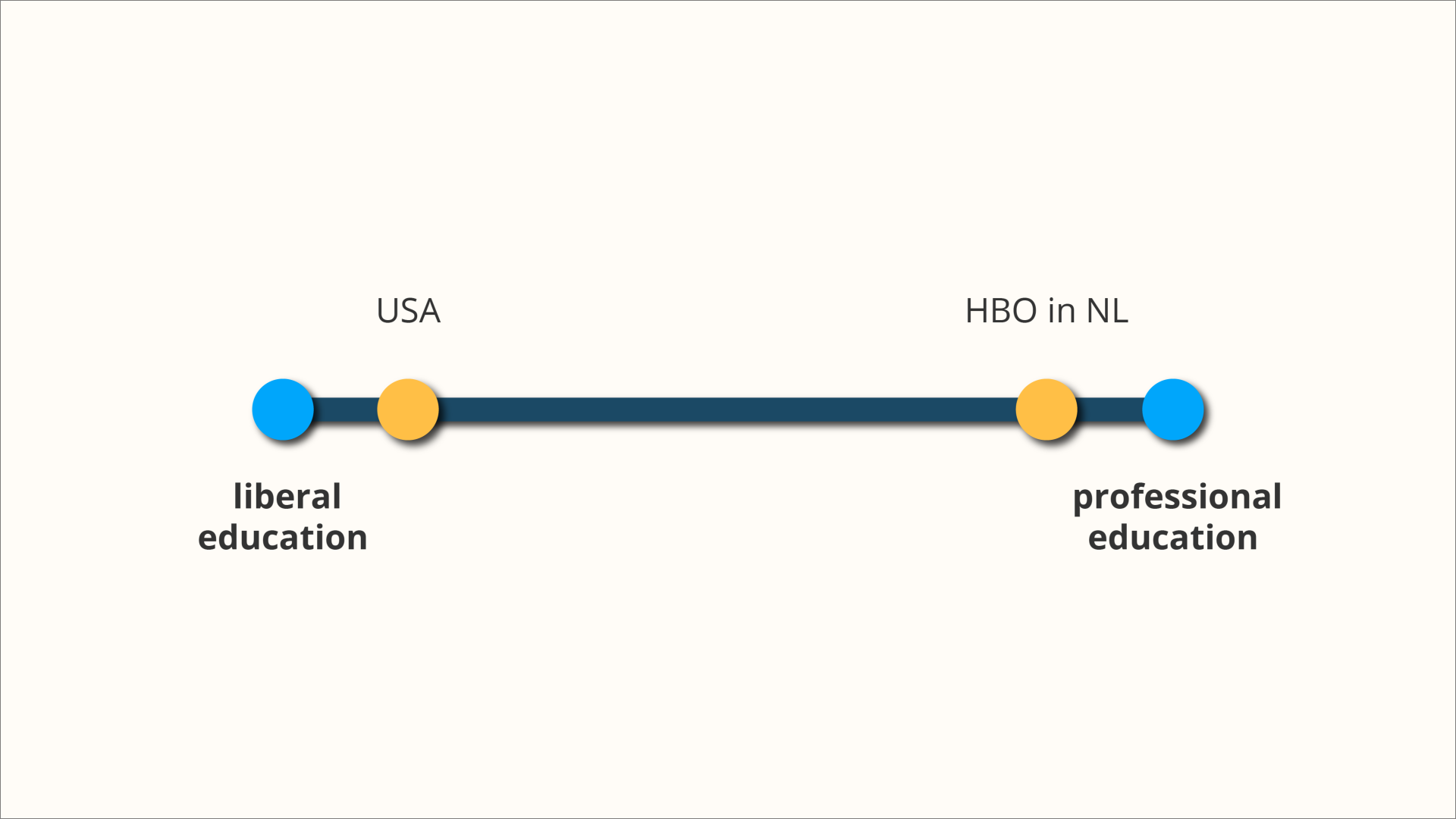
Tilburg University, my current employer, lies somewhere in the middle of the liberal-professional continuum. The curriculum features both liberal and professional aspects. Students dive deep into their respective disciplines and 'nerd out' on theories - not because they will necessarily apply them directly later in life - but because engaging with them teaches them to think, critically evaluate information, and because it’s fun. On the other hand, many international students in particular consider Tilburg University's curriculum to be quite practical. Many courses include working on real-world problems, through which students develop useful skills for later in their careers.
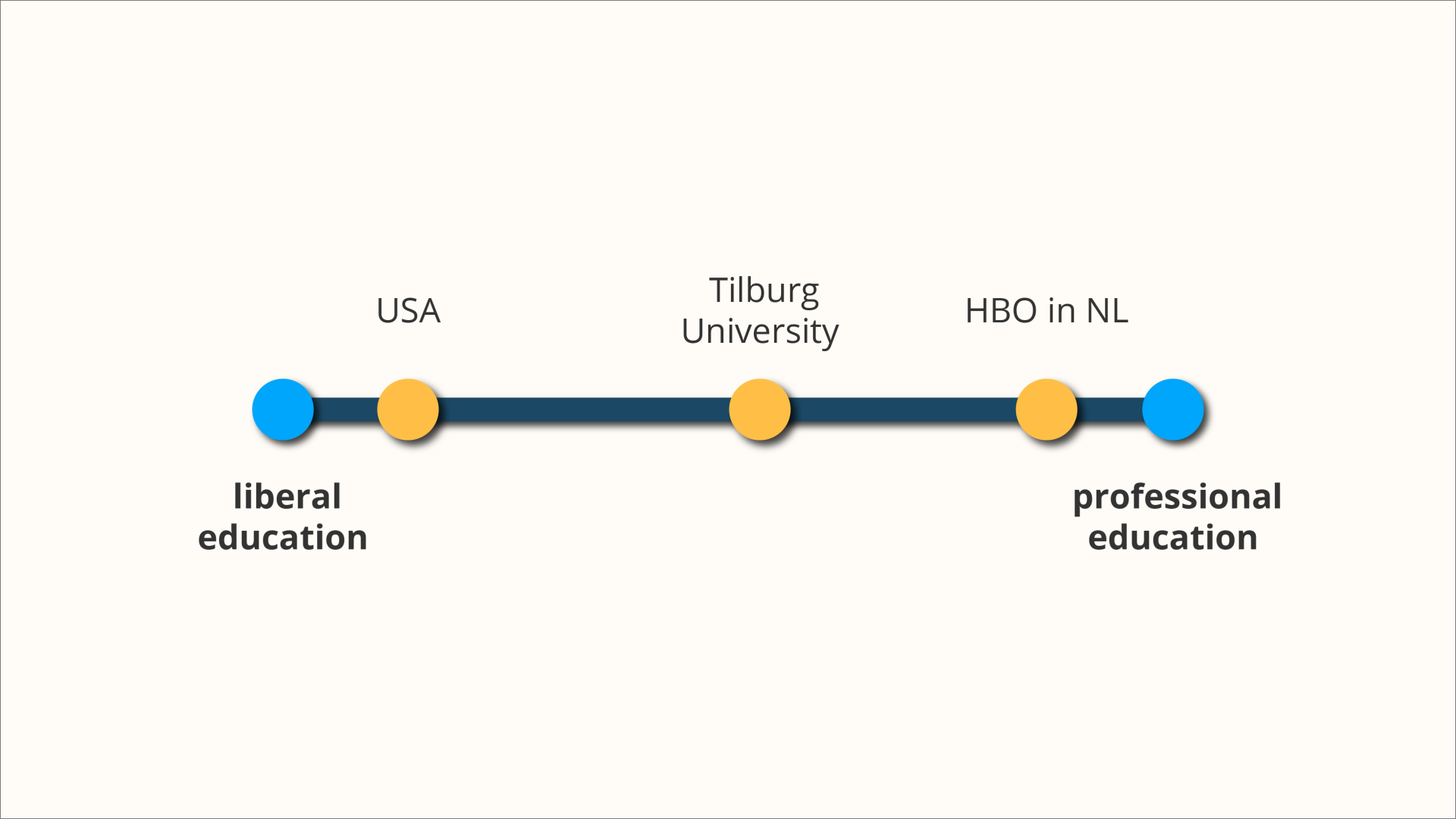
What do you think? To what extent should universities teach liberal or professional content? Let me know in the LinkedIn comments.
